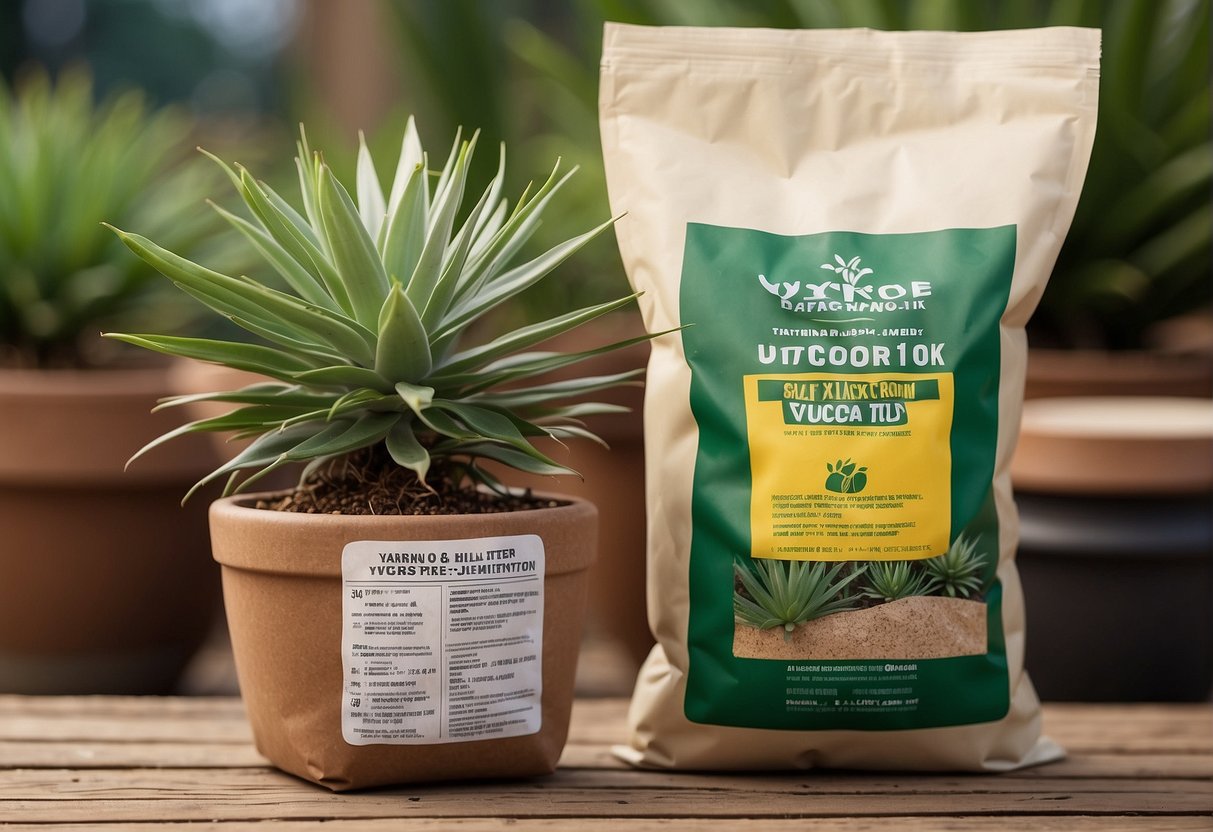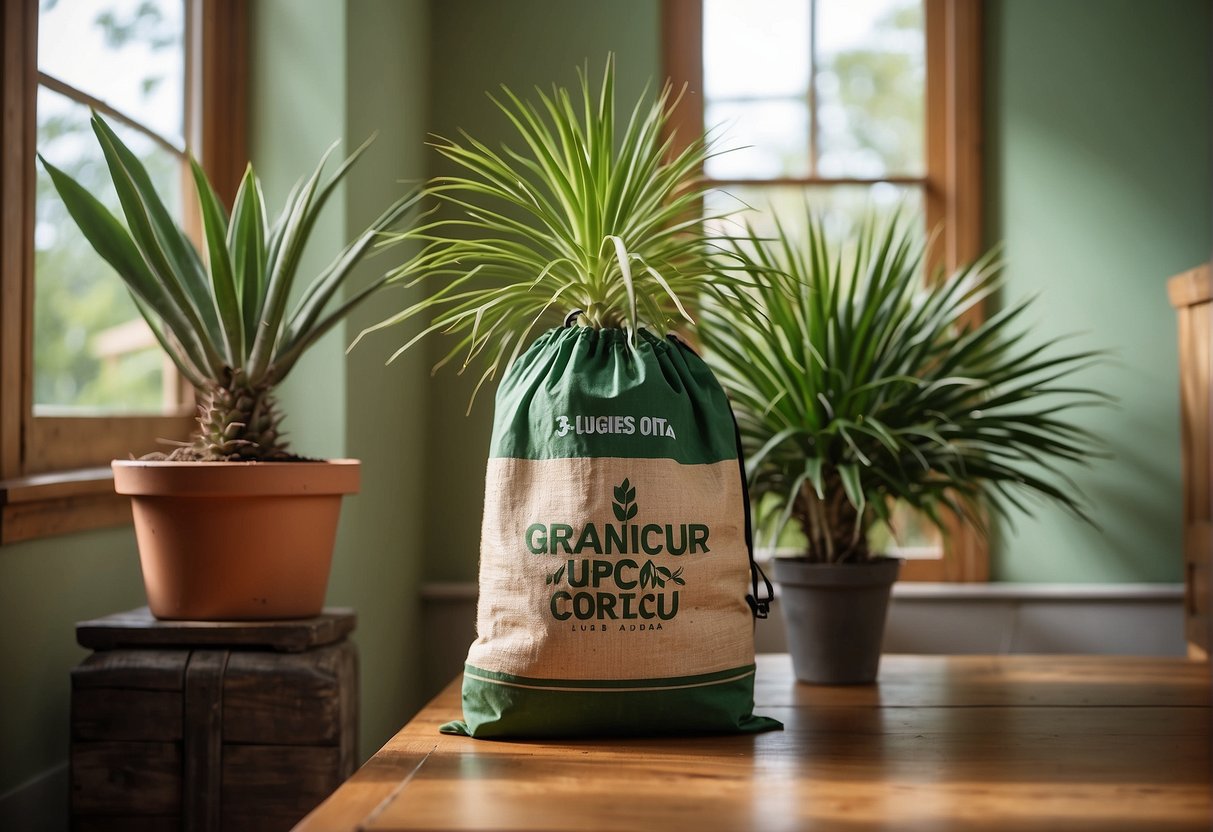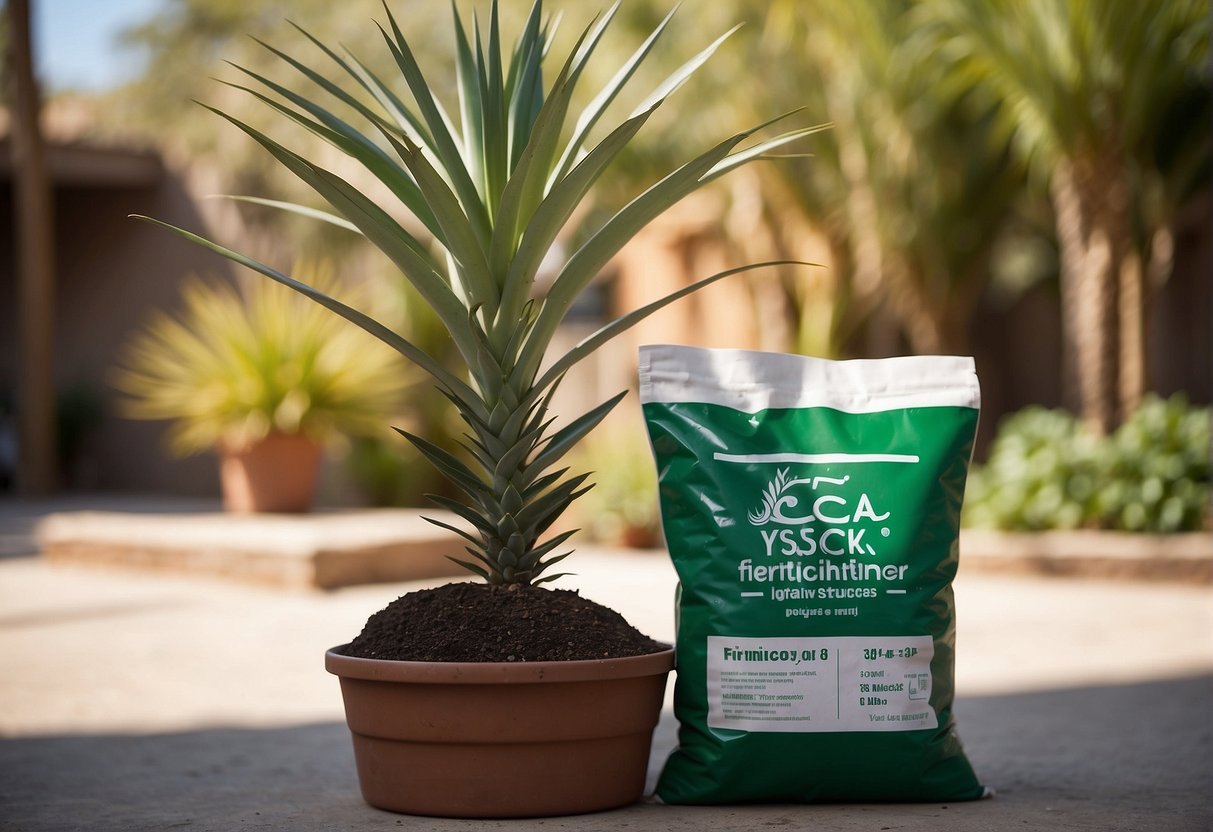Yucca plants have become a favored option for both indoor and outdoor gardens, thanks to their distinctive look and ease of care. A key part of maintaining yucca plants involves picking the appropriate fertilizer. Fertilizers offer vital nutrients necessary for the growth of plants, and selecting the best one is crucial for the flourishing of your yucca plants.

When selecting a fertilizer for your yucca plants, it’s important to consider their specific needs. Yucca plants are hardy and can tolerate a wide range of soil conditions, but they do require certain nutrients to grow and remain healthy. In this article, we’ll discuss the different types of fertilizers available for yucca plants and which ones are best suited for their growth and maintenance.
Key Takeaways
- Choosing the right fertilizer is crucial for the growth and maintenance of yucca plants.
- Yucca plants have specific nutrient requirements that should be considered when selecting a fertilizer.
- Different types of fertilizers are available for yucca plants, and each has its own benefits and drawbacks.
Selecting the Right Fertilizer for Yucca Plants
When it comes to fertilizing your yucca plants, it’s important to understand their nutrient needs and choose the right fertilizer for optimal growth and blooming. In this section, we’ll cover the essential nutrients for yucca plants, the types of fertilizers available, and how to apply them effectively.
Understanding Nutrient Needs
Yucca plants require a balanced blend of essential nutrients for healthy growth and blooming. The three primary nutrients required by yucca plants are nitrogen, phosphorus, and potassium. Nitrogen is essential for leaf growth and overall plant development, while phosphorus promotes root growth and flower production. Potassium helps regulate water balance and strengthens the plant’s resistance to stress.
In addition to these primary nutrients, yucca plants also require trace amounts of iron, manganese, copper, magnesium, zinc, and sulfur. These micronutrients are crucial for proper plant development and should be included in any fertilizer you choose.
Fertilizer Types and Application
There are two primary types of fertilizers available for yucca plants: liquid and granular. Liquid fertilizers are fast-acting and are absorbed quickly by the plant, while granular fertilizers release nutrients slowly over time.
When fertilizing yucca plants, it’s best to apply fertilizer in the spring or early summer when the plant is actively growing. Avoid fertilizing in late summer or fall, as this can stimulate new growth that may not have time to harden off before winter.
To apply liquid fertilizer, dilute the fertilizer according to the package instructions and apply directly to the soil around the plant. For granular fertilizer, sprinkle the fertilizer around the base of the plant and water thoroughly to help the nutrients penetrate the soil.
Overall, choosing the right fertilizer for your yucca plants is essential for optimal growth and blooming. By understanding their nutrient needs and applying fertilizer correctly, you can help your yucca plants thrive and add beauty to your landscape.
Yucca Plant Care and Maintenance

Yucca plants are easy to care for and maintain, making them popular with gardeners and indoor plant enthusiasts alike. To keep your yucca plant healthy and green, it is important to follow a few basic care and maintenance guidelines.
Watering and Soil Requirements
Yucca plants are drought tolerant and prefer well-draining soil. When watering your yucca plant, it is important to allow the soil to dry out completely between waterings. Overwatering can lead to root rot and yellowing leaves.
To ensure optimal growth, use a well-draining potting soil and make sure the pot has adequate drainage. If planting your yucca in the ground, make sure the soil is well-draining and amend with sand or gravel if necessary.
Optimizing Growing Conditions
Yucca plants prefer moderate to bright light and can tolerate a wide range of temperatures. They do well in indoor environments with moderate humidity and can be grown outdoors in warmer climates.
To promote healthy growth, fertilize your yucca plant once a month during the growing season with a balanced fertilizer. Avoid over-fertilizing, as this can lead to stunted growth.
Preventing and Treating Common Issues
Yucca plants are relatively pest and disease resistant, but can be susceptible to scale, mealybugs, and spider mites. To prevent these pests, keep your plant clean and free of debris.
If you notice droopy or yellowing leaves, this may be a sign of overwatering or underwatering. Adjust your watering schedule accordingly.
Pruning your yucca plant can help promote healthy growth and prevent overcrowding. When pruning, make sure to use clean, sharp tools to prevent damage to the plant.
By following these simple care and maintenance guidelines, you can ensure that your yucca plant remains healthy and vibrant for years to come.
Frequently Asked Questions

What type of fertilizer is best for indoor yucca plants?
Indoor yucca plants require a balanced fertilizer that contains equal amounts of nitrogen, phosphorus, and potassium. A slow-release fertilizer is recommended to avoid over-fertilization. You can also use a liquid fertilizer every two weeks during the growing season.
How often should yucca plants be fertilized when grown outdoors?
Yucca plants grown outdoors should be fertilized once a year in the spring. Use a balanced fertilizer with equal amounts of nitrogen, phosphorus, and potassium. Avoid fertilizing yucca plants during the winter months.
Is a 10-10-10 fertilizer suitable for yucca plants?
A 10-10-10 fertilizer is suitable for yucca plants, but it’s important to use it in moderation. Over-fertilization can damage the roots and leaves of the plant. It’s best to use a balanced fertilizer with equal amounts of nitrogen, phosphorus, and potassium.
Can you use coffee grounds as fertilizer for yucca trees?
Yes, coffee grounds can be used as fertilizer for yucca trees. Coffee grounds are rich in nitrogen, which is essential for plant growth. However, it’s important to use coffee grounds in moderation to avoid over-fertilization.
Is Miracle-Gro Succulent Plant Food effective for yuccas?
Miracle-Gro Succulent Plant Food can be effective for yuccas, but it’s important to follow the instructions carefully. Over-fertilization can damage the plant. It’s best to use a balanced fertilizer with equal amounts of nitrogen, phosphorus, and potassium.
What nutrients do yucca plants require for optimal growth?
Yucca plants require nitrogen, phosphorus, and potassium for optimal growth. Nitrogen is essential for the development of leaves and stems. Phosphorus is important for root development and flower production. Potassium helps the plant to resist disease and stress. A balanced fertilizer with equal amounts of these nutrients is recommended for yucca plants.














